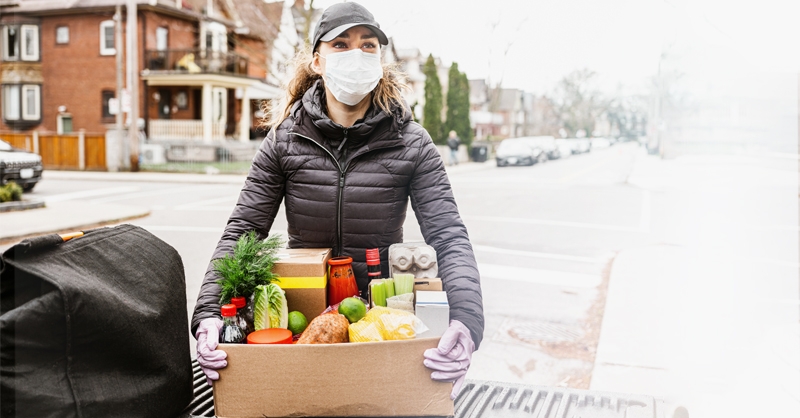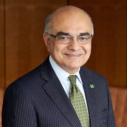By Bharat Masrani
Group President and Chief Executive Officer
TD Bank Group
Bharat Masrani is the 2020 Campaign Chair for United Way Greater Toronto. This article first appeared in The Globe and Mail.
As COVID-19 cases continue to rise, the economic divide is deepening. The data are clear: Populations and communities already vulnerable at the onset are bearing the brunt of the economic, social and health impacts of the pandemic.
During the lockdown period in March and April, Statistics Canada reported that across the country low-wage employees experienced a 38-per-cent drop in employment, while all other paid employees declined by 13 per cent. Fast forward to September and positions for higher-paid employees have fared significantly better, even increasing year-over-year, while low-wage employment is down 22 per cent relative to a year ago.
As we rebuild, we must confront head-on the growing inequalities and polarization that have been exacerbated by the pandemic. As we look to tomorrow, a more inclusive and equitable future is critical, more so now than ever before.
For many vulnerable and visible minority groups, the pandemic has made an already tenuous situation unsustainable. COVID-19 has laid bare the impacts of historical bias and the disadvantages of marginalized communities – many of which have been disproportionately impacted by the pandemic, with higher unemployment and wider infection rates. Compounding these existing inequalities, we are seeing the early signs of a “k-shaped” recovery where higher earners rebound and those with lower incomes carry the weight of the crisis.
It is clear our communities need help today, but existing support systems are stretched thin as the non-profit sector tries to respond to overwhelming demand with diminished funding. Imagine Canada reports that charities are experiencing significant declines in revenue as well as challenges in engaging volunteers to support their activities. According to the sector, government programs have provided some critical relief, but the situation remains worrisome, and the need has never been greater.
So many of us, from every industry, have stepped up and continue to take action every day to bridge the gap in charitable funding and community support. At TD, we have donated millions of dollars to charities, health groups and community and professional organizations through the TD Community Resilience Initiative, to help society overcome the current crisis and build a bright future together. But collectively, we can and must do more.
This year, I have the honour and privilege of leading the United Way Greater Toronto campaign to fundraise for the largest investor in social services in the area, second only to government. I accepted this role before the pandemic began and today I am extremely grateful I did. It is no small task to fundraise during challenging economic times, but I am guided by my firm belief that a strong, co-ordinated network of front-line agencies working together is one of the most impactful ways to fight local poverty and empower our communities as we work toward an inclusive recovery.
Future generations will look back at our response to COVID-19 and judge us by how we supported those who were disproportionately impacted – how we came together to lift each other up in the wake of this crisis.
Across the Greater Toronto Area, we are all experiencing some level of personal or professional challenge, but collectively we are not powerless, and a better tomorrow demands our attention today. As we make progress on the path toward recovery, those of us who have the means have an opportunity to support our communities and contribute to a more equitable recovery. As we look forward, I leave you with two questions: If not us, who? And if not now, when will there be a more impactful time to support our communities?

